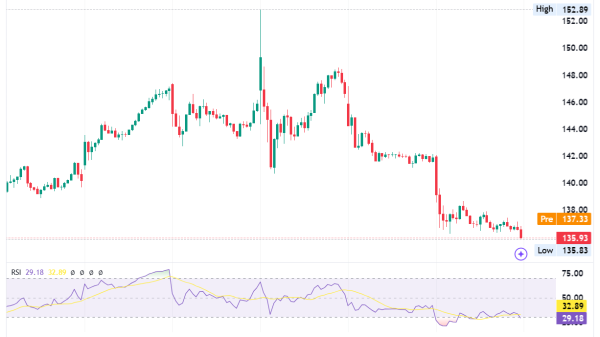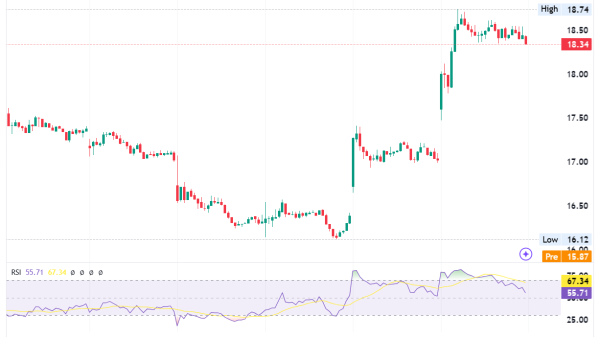Economic Indicators in Focus: The Euro and Oil Dynamics
The Euro sees a dip following the previous week’s surge.
A potential decline to -18.2 is projected in the Eurozone consumer confidence.
A struggle for the EUR/USD as it remains under 1.06.
The EUR/USD is currently on a downward trajectory, influenced by the strengthening of the U.S. dollar. Investors eagerly await the week’s economic indicators, including the ECB rate decision, U.S. GDP, and inflation data.
The focal point for today, however, is the release of the Eurozone consumer confidence data. It’s anticipated to show a decline from -17.8 in October to -18.2. A drop in consumer confidence emphasizes the ongoing economic challenges faced by households due to rising inflation and record interest rates. Such a dip can signal a weakened economy and reduced inflation, potentially indicating the end of the ECB’s rate increases.
The U.S. dollar benefits from safe-haven investments, especially with the ongoing Middle East disputes. The start of the week saw the 10-year treasury yields below 5%. These yields rose past the 5% mark in the previous week, influenced by remarks from Federal Reserve chair Jerome Powell regarding the robust U.S. economy and the possibility of tighter financial conditions. Upcoming data to monitor includes the US Chicago Fed National Activity Index, projected to show growth for September.
After a consistent rise over the previous week, EUR/USD now targets specific milestones. With the RSI providing limited insight, buyers aim to breach the 1.0615 mark to eventually reach 1.0680. Conversely, sellers have their sights on the 1.0560 level, and further down, the October 13 low of 1.0495.
Oil Price Adjusts Amid Middle East Diplomatic Efforts
Oil prices decline after previous gains.
Israel holds back from a full-scale ground assault.
Oil prices slip beneath crucial technical benchmarks.
Optimism surrounds the diplomatic efforts addressing the Israel-Hamas situation, causing a dip in oil prices. Over the weekend, there were intensified attempts to mediate the Israel-Gaza conflict. Despite the continuation of attacks in Gaza, diplomatic efforts, including aid convoys entering Gaza from Egypt and diplomatic meetings in Cairo, have provided a glimmer of hope to the markets.
The restraint shown by Israel, choosing not to embark on a ground invasion, suggests a potential for peace negotiations. It’s essential to recognize that these geopolitical tensions arise in an already strained oil supply environment, influenced by production cuts from OPEC and Russia. However, the recent easing of U.S. sanctions on Venezuela may alleviate some supply concerns.
After facing resistance at 89.79, oil prices retreated below critical levels and now challenge the 20 sma at 86.60. A further dip could see prices touch the 50 sma at 85.80 and possibly the previous week’s low of 84.40. If prices maintain above the 20 sma, the next targets for buyers are the 89.25 and 89.80 levels, followed by the September high of 92.40.
The post Economic Indicators in Focus: The Euro and Oil Dynamics appeared first on FinanceBrokerage.





























